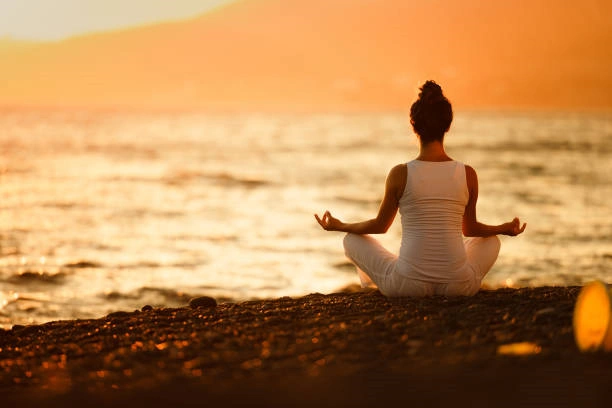How to Relieve Stress and Anxiety Through Meditation
Nowadays, stress and anxiety seem to have become the norm. Work pressures, complex relationships, and uncertainties about the future surround us with various challenges. In this environment filled with challenges and stress, meditation has become a valuable and powerful tool. More and more people are using it to reduce stress and anxiety and to restore inner peace and stability.
The Relationship Between Meditation and Stress/Anxiety
Meditation is a practice that focuses on awareness and mindfulness. By grounding our awareness and guiding ourselves into the present moment with deep breathing, we can reach a state of inner peace and tranquility. Stress and anxiety, on the other hand, arise from worries about the future, anxieties about the past, and discomfort in the present. Meditation helps us reconnect with the present, freeing us from the burdens of past troubles and future worries. By focusing on breathing and bodily sensations, we can learn to accept everything in the present moment, allowing anxiety and stress to gradually fade away.

How Meditation Relieves Stress and Anxiety
- Cultivating Mindfulness
Meditation fosters mindfulness, helping us become aware of not being controlled by negative emotions and thoughts. Mindfulness teaches us to accept everything in the present moment without judgment or resistance, simply observing. This helps us break free from overthinking and negative emotions, reducing anxiety. - Deep Relaxation
During meditation, we can enter a state of deep relaxation. The body and mind gradually relax, muscles loosen, and breathing becomes deep and even. This state helps relieve physical stress, calm anxious emotions, and restore balance in the body. - Breathing Practice
Breathing is a key part of meditation. Focusing on the breath can help reduce stress and anxiety. Deep, even breathing can calm the mind and alleviate anxiety and stress. Practicing deep and slow breathing brings a more tranquil and relaxed state. - Focus Training
Meditation emphasizes training our attention. By practicing focus, we can better control our thoughts and prevent distracting thoughts from taking over. This helps reduce overreaction to external stimuli, thereby easing stress and anxiety. - Cultivating Inner Peace
Meditation teaches us to cultivate inner peace. During meditation, we learn to face our inner fears and unease, gradually accepting and releasing them. This inner peace and acceptance help us face daily challenges and pressures more calmly, reducing feelings of anxiety.

Meditation Practice Tips
- Regular Practice
Regular meditation practice has long-term benefits for relieving stress and anxiety. Set aside some time each day to be alone and focus on meditation. Whether it’s for 5 minutes or 30 minutes, consistency is key. - Find a Quiet Space
Meditate in a quiet and comfortable space. Eliminate distractions and create an environment that allows you to relax and focus. - Guidance from a Mentor or Apps
Seeking guidance from a meditation teacher or using meditation apps can help beginners better master the techniques and methods of meditation. - Combine with Physical Activity
Some people choose to meditate while practicing yoga, tai chi, or walking. Combining meditation with physical activity can make it easier to enter a meditative state. - Persistence and Self-Compassion
Meditation is a skill that requires persistent practice. However, it’s also important to be compassionate with yourself. Don’t get frustrated with thoughts or emotions that arise during meditation—accept and gradually release them.

Conclusion
Meditation is a powerful tool that can help reduce stress and anxiety, restoring inner peace and balance. By cultivating mindfulness, deep relaxation, breathing exercises, focus training, and inner calm, we can gradually free ourselves from the burdens of stress and anxiety. With consistent meditation practice, integrating mindfulness into daily life, and regularly seeking inner peace, we can achieve a healthier, more balanced, and happier life.





